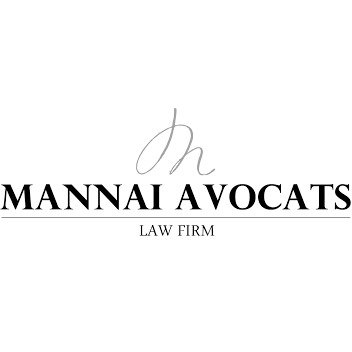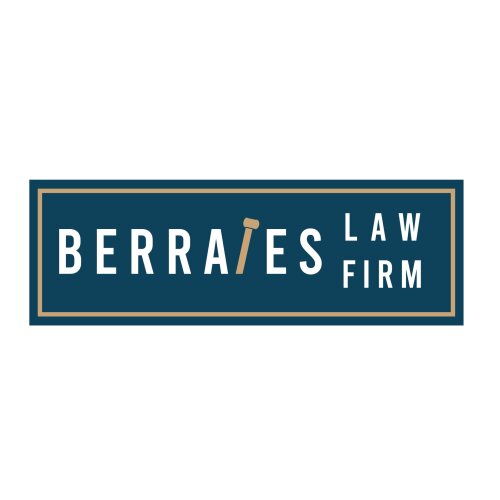Best Art & Cultural Property Law Lawyers in Tunis
Share your needs with us, get contacted by law firms.
Free. Takes 2 min.
List of the best lawyers in Tunis, Tunisia
About Art & Cultural Property Law in Tunis, Tunisia
Art & Cultural Property Law in Tunis, Tunisia, encompasses the legal aspects related to the protection, management, and restitution of cultural heritage and art artifacts. Tunisia, with its rich historical and cultural legacy, is committed to preserving its artifacts and ensuring lawful ownership and trading of these items. The legal framework aims to combat illicit trade, promote cultural education, and support rightful ownership through adherence to national and international regulations.
Why You May Need a Lawyer
Individuals may require legal help in Art & Cultural Property Law in various situations, including:
- Buying or selling art or cultural artifacts and ensuring the transaction complies with legal standards.
- Seeking restitution of cultural properties that were illegally exported or imported.
- Involvement in disputes over the ownership or provenance of artworks.
- Donation, inheritance, or lending of cultural properties to museums or exhibitions.
- Exporting cultural artifacts from Tunisia, which requires understanding complex legal requirements.
- Navigating international disputes related to cultural property.
Local Laws Overview
In Tunis, Tunisia, Art & Cultural Property Law is governed by several key laws and regulations designed to protect cultural heritage. Important aspects include:
- The protection of archaeological and historical sites, governed by national heritage laws.
- Regulations on the export and import of cultural goods to prevent illicit trafficking.
- Legal frameworks supporting the restitution of cultural artifacts that have been expatriated unlawfully.
- Insurance and legal contracts related to the temporary lending of artworks to exhibitions and galleries.
- Compliance with international treaties such as UNESCO conventions on cultural property.
Frequently Asked Questions
What is the legal process for exporting art from Tunisia?
To export art legally from Tunisia, you need authorization from relevant authorities, including a certificate of authenticity and legal clearance, ensuring the piece is not a protected cultural artifact.
How are disputes over the ownership of cultural property resolved?
Such disputes are typically addressed in courts involving considerations of provenance, legality of acquisition, and adherence to national and international laws. Legal experts can assist in navigating these complex issues.
What are the consequences of dealing with illicit artifacts?
Dealing with illicit artifacts can result in serious legal consequences, including fines, confiscations, and criminal charges. Additionally, it tarnishes reputations and undermines historical preservation efforts.
Are there specific laws protecting archaeological sites in Tunisia?
Yes, Tunisia has laws that strictly protect archaeological sites and historical landmarks. Unauthorized excavation, damage, or trading of materials from these sites is prohibited by law.
What is the process for recovering stolen artwork?
Recovery involves legal proceedings which may include proving ownership, collaborating with international organizations, and negotiations or litigation to reclaim the artwork.
Can art be used as collateral for loans in Tunisia?
Yes, artwork can be used as collateral if a proper valuation is conducted and legal contracts are drafted to ensure compliance with financial regulations.
How can one verify the authenticity of an art piece?
Authenticity can be verified through expert evaluations, provenance research, and obtaining certificates of authenticity from recognized authorities or institutions.
What measures are taken to protect cultural heritage in times of conflict?
During conflicts, Tunisia collaborates with international bodies to implement emergency protective measures, including secure storage and preventive legal actions against smuggling.
Is it possible to lend artworks to international exhibitions without legal issues?
Yes, as long as robust legal agreements are in place addressing insurance, transport, and the rights of return. Compliance with international trade and art laws is essential.
What role do insurance companies play in art and cultural property law?
Insurance companies provide coverage for loss, theft, or damage of artworks, and they are crucial in risk management for collectors, museums, and galleries.
Additional Resources
For more information on Art & Cultural Property Law, consider consulting:
- The National Institute of Heritage in Tunisia for guidance on heritage preservation and legal frameworks.
- The Ministry of Culture, which can provide information on current laws and cultural initiatives.
- International organizations such as UNESCO offer resources and support for cultural property issues.
- Local lawyers specializing in art law can be invaluable in specific legal matters.
Next Steps
If you need legal assistance in Art & Cultural Property Law, consider the following steps:
- Identify the specific legal issue or situation you are facing.
- Research and contact a lawyer or legal firm specializing in art law in Tunis for consultation.
- Prepare all necessary documents, including provenance, legal ownership, or any disputes you are involved in.
- Stay informed about local and international laws by following updates from legal and cultural institutions.
- Collaborate with legal professionals to ensure compliance and protect your interests successfully.
Lawzana helps you find the best lawyers and law firms in Tunis through a curated and pre-screened list of qualified legal professionals. Our platform offers rankings and detailed profiles of attorneys and law firms, allowing you to compare based on practice areas, including Art & Cultural Property Law, experience, and client feedback.
Each profile includes a description of the firm's areas of practice, client reviews, team members and partners, year of establishment, spoken languages, office locations, contact information, social media presence, and any published articles or resources. Most firms on our platform speak English and are experienced in both local and international legal matters.
Get a quote from top-rated law firms in Tunis, Tunisia — quickly, securely, and without unnecessary hassle.
Disclaimer:
The information provided on this page is for general informational purposes only and does not constitute legal advice. While we strive to ensure the accuracy and relevance of the content, legal information may change over time, and interpretations of the law can vary. You should always consult with a qualified legal professional for advice specific to your situation.
We disclaim all liability for actions taken or not taken based on the content of this page. If you believe any information is incorrect or outdated, please contact us, and we will review and update it where appropriate.











